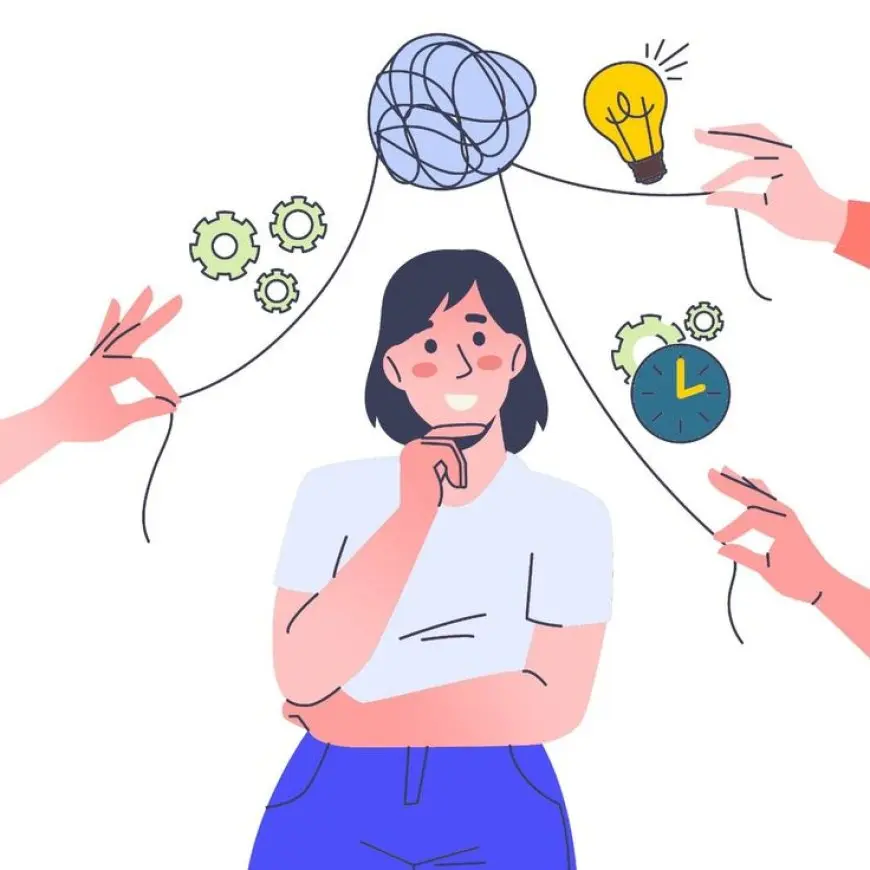How to Improve Your Emotional Intelligence
How to Improve Your Emotional Intelligence

How to Improve Your Emotional Intelligence
Emotional intelligence (EI) is the ability to recognize, understand, and manage your own emotions while effectively navigating and responding to the emotions of others. It plays a critical role in building healthy relationships, achieving personal success, and maintaining mental well-being. Unlike some traits, emotional intelligence can be developed and strengthened with practice and awareness. Here are ways to improve your emotional intelligence and unlock your potential.
Cultivate Self-Awareness
The foundation of emotional intelligence is self-awareness. This involves recognizing your emotions as they arise and understanding how they influence your thoughts and actions. To improve self-awareness, practice mindfulness or journaling to reflect on your emotions and what triggers them. Being honest with yourself about your feelings allows you to respond thoughtfully rather than react impulsively.
Practice Self-Regulation
Managing your emotions effectively is a cornerstone of emotional intelligence. Self-regulation helps you stay composed under stress, maintain a positive outlook, and respond to situations constructively. Techniques like deep breathing, meditation, and taking a pause before responding can help you stay in control, even during emotionally charged situations.
Develop Empathy
Empathy is the ability to understand and share the feelings of others. To cultivate empathy, focus on active listening—truly hearing what others say without interrupting or forming judgments. Try to see situations from their perspective and validate their emotions. Empathy strengthens connections and builds trust in relationships.
Enhance Your Social Skills
Strong social skills are an essential aspect of emotional intelligence. These include effective communication, conflict resolution, and teamwork. Pay attention to nonverbal cues such as body language and tone of voice, which can reveal much about what someone is feeling. By being approachable, respectful, and solution-oriented, you can build stronger bonds with others.
Recognize and Manage Stress
Stress can hinder emotional intelligence by making it harder to think clearly and interact positively with others. Learn to identify when stress is affecting you and take proactive steps to manage it. Exercise, meditation, and spending time in nature can help reduce stress and improve your emotional resilience.
Foster Resilience and Optimism
Resilience involves bouncing back from setbacks, while optimism is about maintaining a positive outlook even in challenging times. Both are key components of emotional intelligence. When facing difficulties, focus on what you can control and look for opportunities to grow. A positive mindset enhances your ability to navigate emotions and support others effectively.
Seek Feedback and Reflect
Feedback from others is invaluable for improving emotional intelligence. Ask trusted colleagues, friends, or family members for constructive input about how you handle emotions or interact with others. Reflect on this feedback with an open mind and use it to identify areas for growth.
Commit to Lifelong Learning
Improving emotional intelligence is an ongoing process. Read books, attend workshops, or explore online resources about EI to gain new insights and strategies. Regularly practicing what you learn ensures continued growth and deeper emotional awareness.
Build Emotional Connections
Strong emotional connections with others enhance your emotional intelligence. Invest time in your relationships by being present, showing appreciation, and offering support. Healthy connections make it easier to understand and navigate emotions in both yourself and others.
Improving your emotional intelligence is a journey of self-discovery, practice, and reflection. By focusing on self-awareness, empathy, communication, and stress management, you can enhance your ability to navigate emotions and build meaningful relationships. As you strengthen your emotional intelligence, you’ll find it easier to achieve personal and professional goals while enjoying a more fulfilling life.







